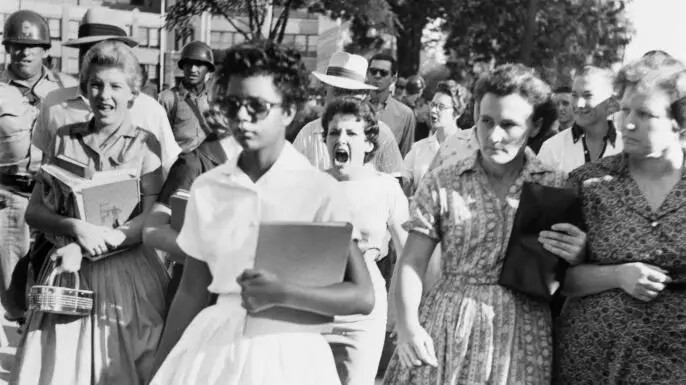After quick read of “Black Darwin”: Joseph L. Graves’ Call to Justice I start have more doubts if Americans still believes in words of Martin Luther King Jr, that content of their character is more important that they skin color? Belowe ther is few incohirent thoughts about that.
While I have problem with Martin Luther King, due to many immorality in his private life, that can’t be accepted in life of normal Christian, even less in the case of the Christian leader as him, I agree 100% with his words about what is true standard for the man: their character. As such, calling someone “Black Darwin” is something that I wouldn’t say. I probably don’t mind if someone was called “American Dawrin” since places when we live have much more deeper impact on our character, than our skin color.
In this article mentioned above, there is few things that sounds odd to me, like “I struggled as an undergraduate, in part because of a lack of advising, and certainly because there were no African American role models in the science departments.” Lack of role models is a thing that I can realate, but it isn’t because of peopels skin. It is simply because it is hard to find people that can guide you in the right direction. Short signeds, unjustified optymism, arogance and things like that make role models hard to find, not how they look. I have see no problem with make person with look different than mine my role models and lack of such statement from Joseph L. Graves, at least I don’t find them, are strange. Like he still can’t overcome thinking that how someone looks is less important that how your character is.
My current expirience with people from different parts of the world is that the best thing that you can do, is to don’t caring about all this American’s nonsense of “being inclusive”, just treat them like any other person. And if issue of they look come out, don’t pretend that they look as “anyone else here”, when this is not true. And it seems to me, that Americans still have problem with doing just that, which goes back to Martin Luther King’s words.
Would I get allong with Jospeh Graves? I have a doubts, because Americans when they have a “just cause” can be extremly hard to live with. You agree with them 100% or you are evil. Not wrong, evil. My way or highway to hell. Such arogant people are find everywhere in the world, but at this moment, Americans seems to me to be especialy prone to this vice. (Maybe I just biased because of my expirience?) And in the end of the article Graves writes “In the final chapter of my book, I outline a path towards social justice that all people of goodwill can get behind”, I hear in my head “Oh, here we go again”. I don’t know how this path looks like, but I already know problems with such claims. Many people claims that their path to “better world” can be accepted be “any good person”. And I know that for 99% if I find such path requiring for me acceptence of abortion as moraly neutral, I will be out in few millisecons. Which can only mean that I’m not a “good person”. Whatever, I don’t care about these opinions.
